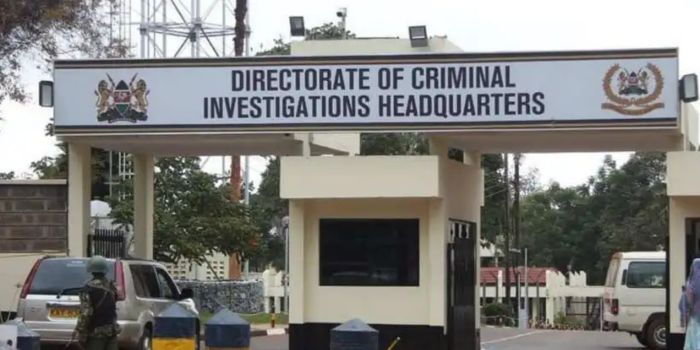The Transnational Organised Crime Unit (TOCU), a special investigative arm of the Directorate of Criminal Investigations, has taken over an inquiry involving allegations concerning Mediheal Hospital’s Fertility and Transplant Centre in Eldoret, Uasin Gishu County.
The move follows reports received at various police stations and DCI offices across the North Rift region regarding possible irregularities in organ transplant procedures.
According to DCI Director Mohamed Amin, TOCU will coordinate the investigation by consolidating existing reports, gathering new statements from affected individuals and witnesses, and conducting forensic analysis.
“This is part of an effort to ensure thorough, fair investigations,” said Amin, who urged anyone with relevant information to present it to the Head of TOCU at DCI Headquarters.
“We are here to ensure justice in this matter, and we assure victims of the same,” he said.
On its part, the hospital has denied the claims.
The government suspended all transplant services.
It specifically halted kidney transplant procedures at the facility.
Separately, the National Assembly’s Departmental Committee on Health has announced an 80-day public inquiry to examine concerns raised regarding transplant procedures at the facility.
This follows a statement issued by the Kenya Renal Association (KRA) on May 3, 2024, raising ethical and legal concerns related to transplant practices involving both local donors and foreign recipients.
The association referenced testimonies indicating potential lapses in informed consent and donor protections.
Committee Chairperson and Seme MP James Nyikal stated that the inquiry will assess whether the facility’s practices complied with the Health Act and Human Tissue Act, and whether existing laws and regulations adequately address such matters.
“Our goal is to determine whether proper protocols were followed and to recommend any necessary policy reforms to protect patients and donors,” Nyikal said.
He also confirmed the committee would be reviewing the roles of all stakeholders, including foreign medical personnel and patients, to ensure adherence to immigration and licensing procedures, as well as to verify the vetting processes for donor-recipient matches.
by CYRUS OMBATI


